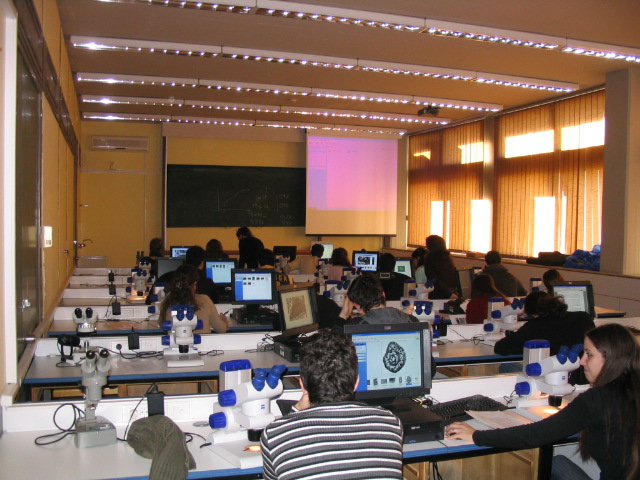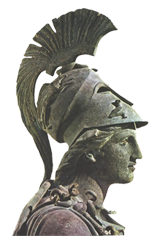Education
Both at an undergraduate and a postgraduate level, education is realized through a series of mandatory and optional courses taught by the scientific staff of the Department, as well as lectures given by distinguished Greek and foreign researchers/scientists. Student practice is realized during exercises in specially equipped laboratories and during field trips and exercises. Also, through their thesis, students are given the opportunity to deal with specialized topics of basic and applied research, based also on their personal scientific interests.
| The Department’s facilities include a computer room with 25 computers and stereoscopes, a teleconference room, three preparation rooms in which fossils and sediments are prepared and analyzed, a Scanning Electron microscope connected to an X-ray Microanalysis system (SEM-WDS), scientific polarizing microscopes and numerous rich comparative collections of fossils and standard sediments, used for scientific research and educational purposes. |  |
The Department explores important Geoscience topics, such as the evolution of life and biodiversity on the planet, the reconstruction of environmental conditions during the geological past, palaeogeography, climatic changes in older geological periods and their effect on living organisms, the use of microfossils as indices of environmental health in marine environments, monuments of Geological heritage. Palaeontological excavations are also conducted by our Department.
The necessary theoretical and practical knowledge is offered to the undergraduate and postgraduate students, in order to conduct stratigraphical, palaeontological and sedimentological studies that consist the basis of every geological and geoenvironmental study. Also, the graduate students are given the opportunity to participate in the enhancing of Geological Heritage monuments as well as the specialized knowledge needed in the study and protection of the geoenvironment.
The study of the evolution of life based on animal and plant remains, leads to a more complete and less anthropocentric conception of evolution and a more objective view of the world. At the same time, the study of environmental changes in the past, contribute to the understanding of the actual results that current and future natural and anthropogenic activities may have on the environment, as it offers diachronic data concerning the possibility, duration, frequency and reversibility of the results, their accumulative character, as well as their magnitude and spatial extent.

